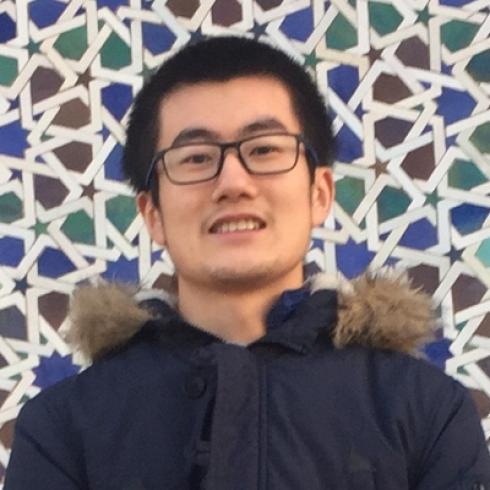"Sawadika!” One Moroccan man pressed the palms of his hands together, bowed a little bit, and greeted me in the old medina with “hello” in Thai.
This is not the first time that people greeted me in random Asian languages. Sawadika, Konichiwa, Ni Hao. None of these is new to me.
You’ve probably heard that Moroccan men catcall women in the streets a lot, especially to foreign women. This happens to me as well, not as often but often enough to annoy me constantly. Moroccan men catcall me and say in Darija (Moroccan Arabic) “chinois/chinuit (China/Chinese)”. There was one time that I turned around in response to a very annoying and persistent catcall, only to see a man and a woman, who proceeded to take a selfie with me without asking my consent. I was shook and stood still for few seconds, before I responded angrily in Darija, “Shnu bghiti? Maajbnish! (What do you want? I don’t like it!)”. It was getting dark, and I walked away as fast as I could. The two people started laughing, and I yelled, “llayhdik! (Let god guide you!)” And they laughed even harder.
There was another time when a Moroccan boy, upon noticing me, presses his palms together and bowed. I was so annoyed and responded in fluent Darija, “Shnu bghti? Guliya daba, ou la sgut! (What do you want? Tell me now, or shut up!)” He was so stunned, not expecting me to say a word of Darija.
At the tram stop today for example, a man approached me and made some sounds in some language that I don’t recognize. I asked, “shnu gliti? (what did you say?)” He responded in English, “Are you Japanese?” Excuse me sir, why can’t you ask me respectfully first before you assume and say non-sense to me?
My pet peeve is definitely that people try to speak “Ni Hao, Ni Hao Ma (hello, how are you)” to me in Chinese, because it literally translates to “You’re good. Are you good?”. It sounds very strange and redundant and I personally don’t think anyone talks like that in China.
It can be frustrating to be treated this way just because I look exotic. But don’t get me wrong. Not everyone will take a picture of an Asian person without consent. Most of them approach me and ask politely whether it’s okay to take a picture with me. And more often than not, I’m exotic in a good way, and especially because I speak Darija well and know a lot of Moroccan slangs; it’s easier for me to make Moroccan friends.
I started using Couchsurfing very extensively this semester in Morocco. At first I only wanted a free place to stay, because I arrived 10 days before the program started, which wasn’t advised by IES Abroad but turned out to be the best decision. I stayed for 10 days with a host in Salé, a city near Rabat. And during the ten days, I learned simple expressions, numbers from 1-99, a lot of Moroccan Darija expressions, and some Moroccan chants for children. Afterwards, I also use Couchsurfing whenever I travel to other cities in Morocco, and always stay for free with different hosts. I specifically write one part of my Couchsurfing profile in Darija, and make public my travel plans on Couchsurfing. So far, I’ve received an overwhelming number of offers from Couchsurfing hosts looking to host me, and they all mentioned that they loved that I know so many Moroccan expressions.
The other day, I walked back from the bus station after buying a bus ticket. One random guy came to me, chatted with me in French for a bit, and gave me his number to keep in touch. A group of kids who were playing soccer also came to me and became so excited once they knew I speak Darija.
As the only East-Asian, non-U.S student in the entire program, I’m so exotic in all my classrooms and professors aren’t really cognizant of my existence. In one class for example, the second time the class met, the professor came up to me and asked me if my name was Li. There is no currently-enrolled student in this program whose name even has Li in it, and we already introduced ourselves the first time the class met. When the professor leads class discussions, she always excludes me by asking, “how does … look like in the United States?” When she does remember to include me in the discussion, she puts me on the spot and expects me to know everything about China and Buddhism. “So what does it look like in China?” “In Islam, …, how about Buddhism?” I’m the token Chinese person that she constantly calls upon. When talking about the U.S. and Morocco, she refers to census reports and quantitative data. However, when she talks about China, she used anecdotes by saying “oh some Chinese tourists told me…” and simply generalized this huge country. I could not stand this during the first few weeks of class and pointed it out in class. She apologized, but still either excludes me in discussions or puts me on spot.

Chen Yu
<p>Speaking fluent Mandarin Chinese, English, and conversational Czech, Yu Chen is currently looking to perfect his French during his upcoming semester abroad in Rabat. Passionate about revealing social and structural inequalities around the world through film and media, Yu Chen is pursuing a bachelor’s degree in Gender & Sexuality Studies and Digital Media Production.</p><p>Previously, Yu Chen has studied environmental issues in Okinawa, conducted research on social practice art in Puerto Rico, exchanged at the Film & TV School of Academy of Performing Arts in Prague, and tasted 44-year-old homemade Serbian Rakija in Belgrade.</p>







